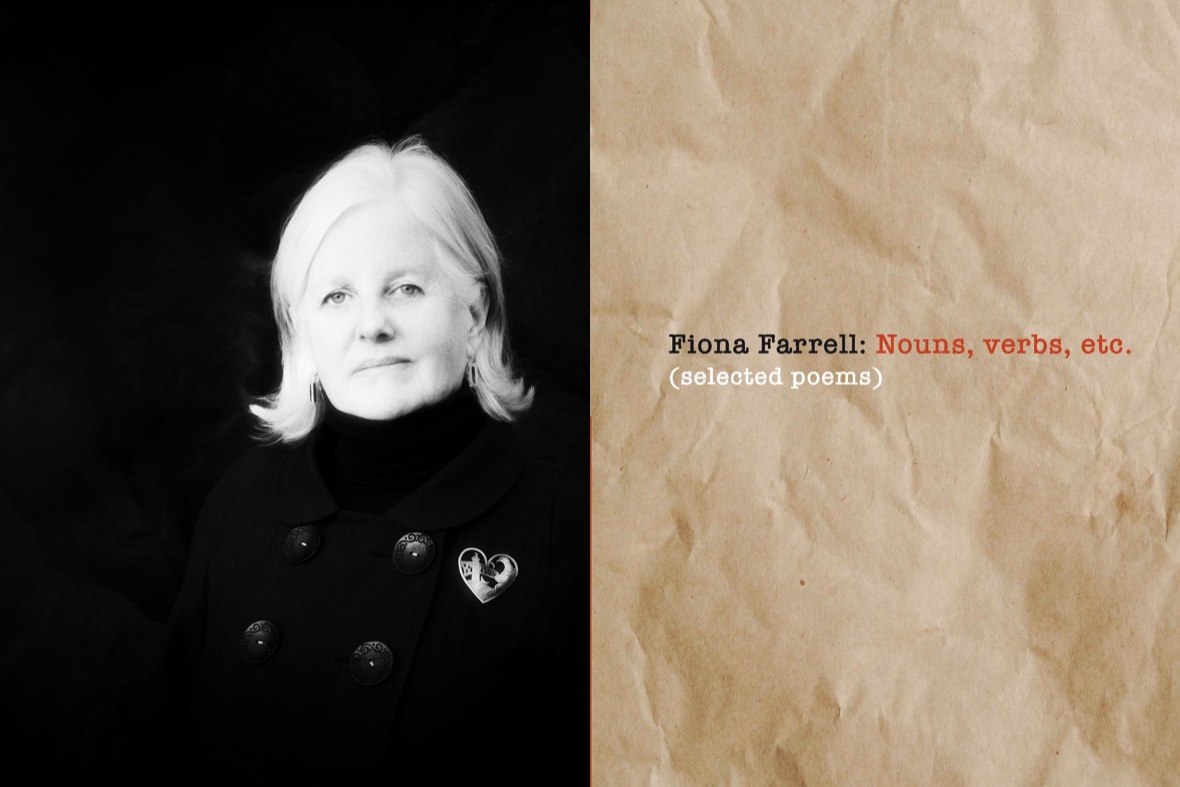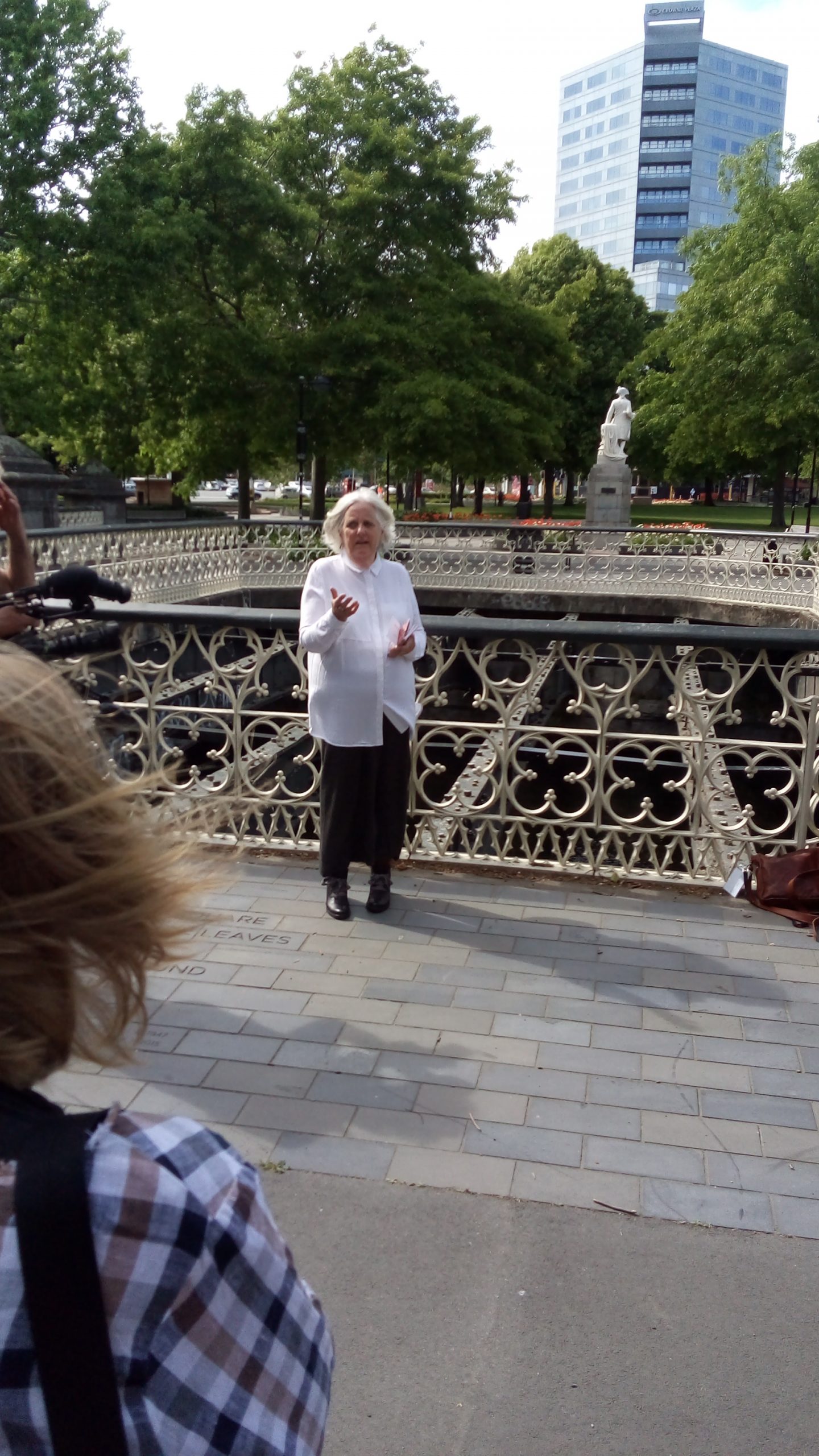In all the rush of WORD Christchurch Spring Festival, author Fiona Farrell found time to answer a few questions. This is remarkable since many of our contributing authors attended each other's events, and had more than one of their own.
Fiona Farrell was part of the launch of her new book of poetry Nouns, Verbs, etc; The Te Papa Ōtākaro Walk; Landmarks: Sydney, Turner, Marshall; and Dear Katherine, a letter to Katherine Mansfield.
Kia ora Fiona, and welcome back to Christchurch for WORD. My name is Fiona Jay: I'm covering some of the events at WORD, including the launch of Nouns, Verbs etc. Thank you for your offer to answer a few questions for me. Your latest book of poetry, Nouns, Verbs, etc has just been released. You have published poetry on language before, particularly in The Inhabited Initial. I loved its precise playfulness. What can we gain from knowing about the minutiae of language?
Kia ora Fiona. (A most excellent name in my opinion...)
Thank you for the questions. I'm afraid I have only my tiny phone to compose a reply so I'll keep it brief.
All poems are word games - but yes: I like the self-consciousness that goes into writing a poem. The awareness of language and its possibilities.
You respond to your environment in much of your poetry and novels, wherever you may be: Menton, Spain, Ireland or New Zealand. What does ‘home’ mean to you?
Home is a where the people I love most can be with me. Doesn't matter where exactly.
Did you know that during lock-down the LIANZA Coalition for Books made it possible for a handful of publishers, including Penguin Books New Zealand, to make their labels available to read to others online? We read Six Clever Girls Who Became Famous Women. What kept you from going stir-crazy during lock-down? Did you produce some of the content of Nouns, Verbs, etc during this time?
I didn't know LIANZA had done that. I'm so pleased to hear it. it is so interesting and somehow satisfying to see a book pop up in an unexpected context.
I know lockdown was awful for many, but to be honest, it didn't feel very different from my ordinary life.
I lived for twenty-five years at the end of a gravel road on the Peninsula and I like quiet and solitude.
We went for walks every day - thank God for green spaces in cities and beaches.
We watched Netflix and National Theatre plays on YouTube in the evenings.
I happened to have taken an enormous Russian cookbook from the library just before lockdown so I worked my way through that.
And I worked - not on Nouns, verbs etc - it was already in process- but on a novel.
And I loved seeing the outbreak steadily coming into control day by day under brilliant leadership. It felt good and necessary.
The characters in Six Clever Girls always reminded me of my own school chums. Were those characters based on real girls you knew?
Yes - but all rearranged. None exactly as I recalled them, it's not autobiography.
Six Clever Girls Who Became Famous Women
A colleague of mine, who writes books for young people, Beulah Pragg, is about to get writing again now that her almost-five is off to school. She feels that now she wants to write about more adult content. Six Clever Girls is a coming-of-age story, while The Skinny Louie Book had more adult content. Looking back on the collection of your poetry, modestly called Nouns, Verbs etc, how do you feel your writing approach has grown with your own life?
I also wrote at greater length as my children grew and I had time.
A colleague of mine, Caitee, wanted to know, is the novel The Decline and Fall of Savage Street based on the house with a turret by the Avon, on the corner of Churchill Street and Cambridge Terrace? She walks past it often and it matches the description of the house in the novel.
No particular house- but I've always loved those Christchurch houses with turrets!
Decline & Fall on Savage Street
WORD Christchurch
- Visit the WORD Christchurch website for the full programme of events
- View our page on WORD Christchurch Spring Festival 2020 for reports, articles, and interviews
- Folllow WORD Christchurch on:






Add a comment to: Last few WORDs: Interview with Fiona Farrell